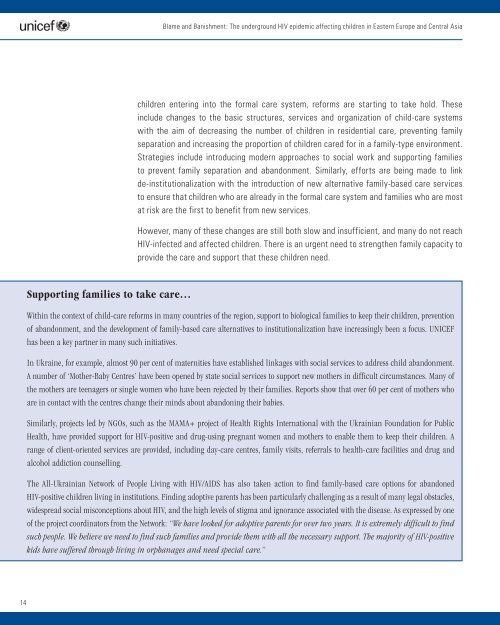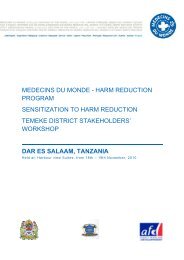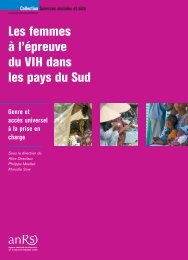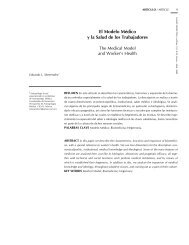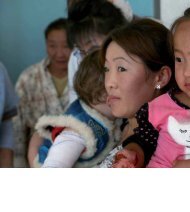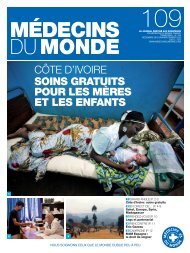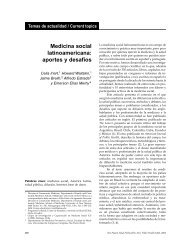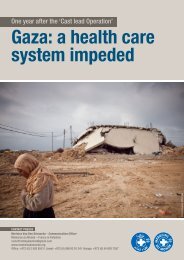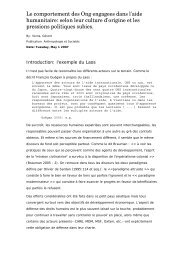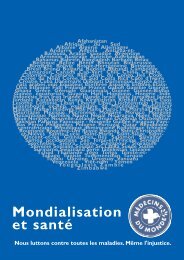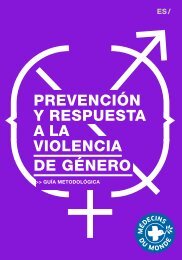Blame & Banishment - Médecins du Monde
Blame & Banishment - Médecins du Monde
Blame & Banishment - Médecins du Monde
Create successful ePaper yourself
Turn your PDF publications into a flip-book with our unique Google optimized e-Paper software.
<strong>Blame</strong> and <strong>Banishment</strong>: The underground HIV epidemic affecting children in Eastern Europe and Central Asia<br />
children entering into the formal care system, reforms are starting to take hold. These<br />
include changes to the basic structures, services and organization of child-care systems<br />
with the aim of decreasing the number of children in residential care, preventing family<br />
separation and increasing the proportion of children cared for in a family-type environment.<br />
Strategies include intro<strong>du</strong>cing modern approaches to social work and supporting families<br />
to prevent family separation and abandonment. Similarly, efforts are being made to link<br />
de-institutionalization with the intro<strong>du</strong>ction of new alternative family-based care services<br />
to ensure that children who are already in the formal care system and families who are most<br />
at risk are the first to benefit from new services.<br />
However, many of these changes are still both slow and insufficient, and many do not reach<br />
HIV-infected and affected children. There is an urgent need to strengthen family capacity to<br />
provide the care and support that these children need.<br />
Supporting families to take care…<br />
Within the context of child-care reforms in many countries of the region, support to biological families to keep their children, prevention<br />
of abandonment, and the development of family-based care alternatives to institutionalization have increasingly been a focus. UNICEF<br />
has been a key partner in many such initiatives.<br />
In Ukraine, for example, almost 90 per cent of maternities have established linkages with social services to address child abandonment.<br />
A number of ‘Mother-Baby Centres’ have been opened by state social services to support new mothers in difficult circumstances. Many of<br />
the mothers are teenagers or single women who have been rejected by their families. Reports show that over 60 per cent of mothers who<br />
are in contact with the centres change their minds about abandoning their babies.<br />
Similarly, projects led by NGOs, such as the MAMA+ project of Health Rights International with the Ukrainian Foundation for Public<br />
Health, have provided support for HIV-positive and drug-using pregnant women and mothers to enable them to keep their children. A<br />
range of client-oriented services are provided, including day-care centres, family visits, referrals to health-care facilities and drug and<br />
alcohol addiction counselling.<br />
The All-Ukrainian Network of People Living with HIV/AIDS has also taken action to find family-based care options for abandoned<br />
HIV-positive children living in institutions. Finding adoptive parents has been particularly challenging as a result of many legal obstacles,<br />
widespread social misconceptions about HIV, and the high levels of stigma and ignorance associated with the disease. As expressed by one<br />
of the project coordinators from the Network: “We have looked for adoptive parents for over two years. It is extremely difficult to find<br />
such people. We believe we need to find such families and provide them with all the necessary support. The majority of HIV-positive<br />
kids have suffered through living in orphanages and need special care.”<br />
14


